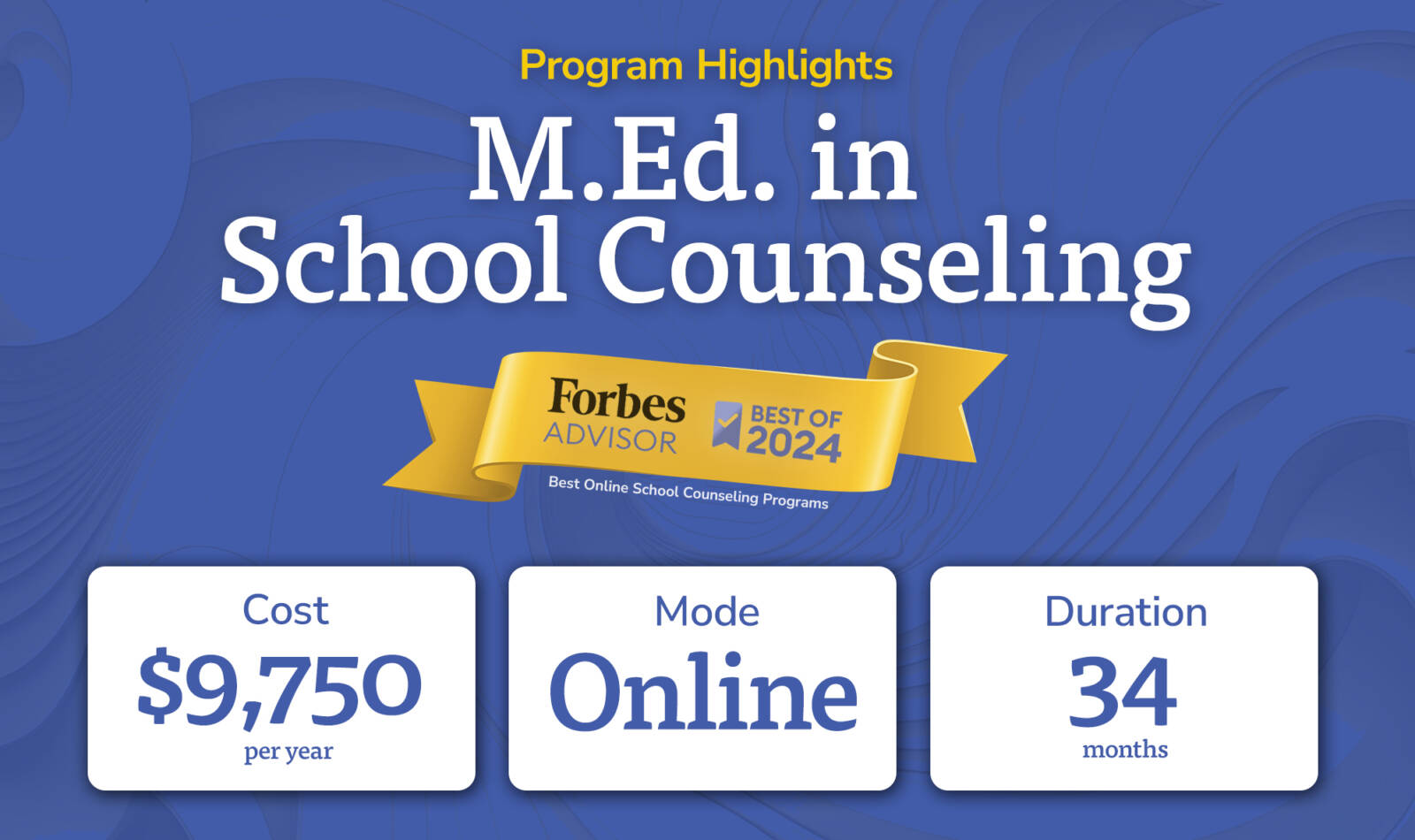
M.Ed. in School Counseling
Salem College’s online master of education in school counseling, or MED-SC, program prepares passionate educators who want to make a difference in the lives of K-12 students. Students will gain the knowledge and skills required to become licensed school counselors and learn about:
- Advocacy
- Ethics and legal issues
- Assessment and evaluation
- Career counseling
- Individual, group, and counseling
- Program management
The MED-SC program consists of online classes, internship experiences, and two weekend residencies on the Salem campus. It follows a cohort model in which new students start with the fall semester and complete their degrees in 34 months. Salem College’s MED-SC program was ranked among the top ten online programs in the nation by Forbes Advisor in 2023.




